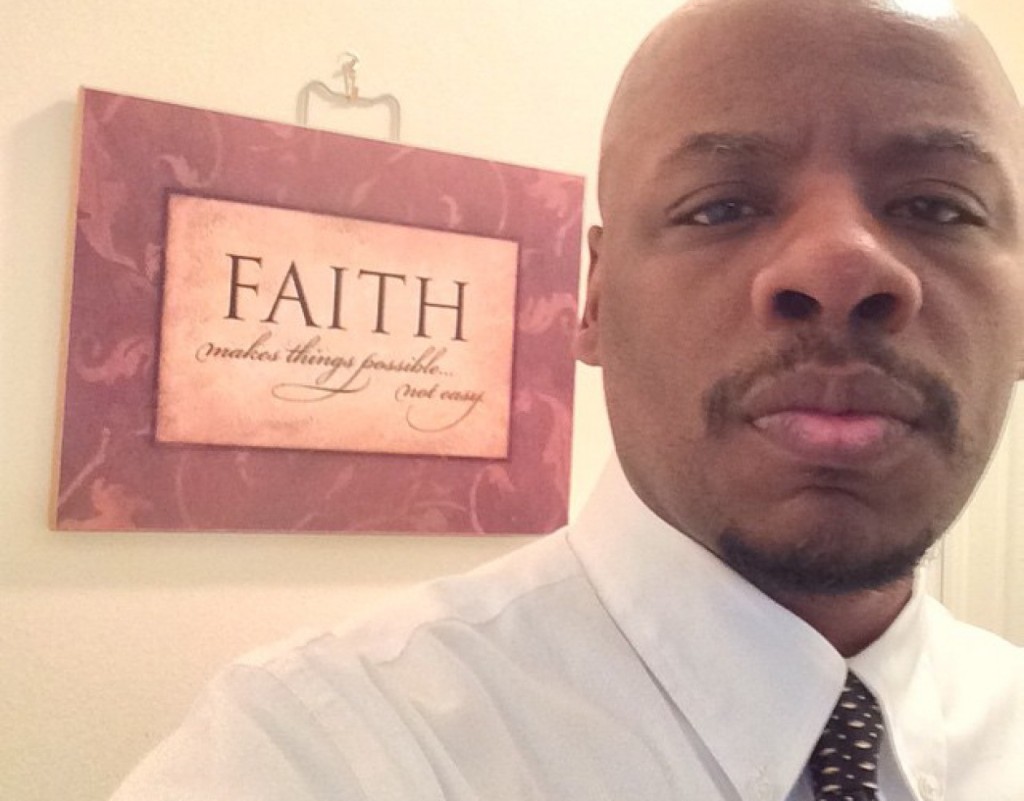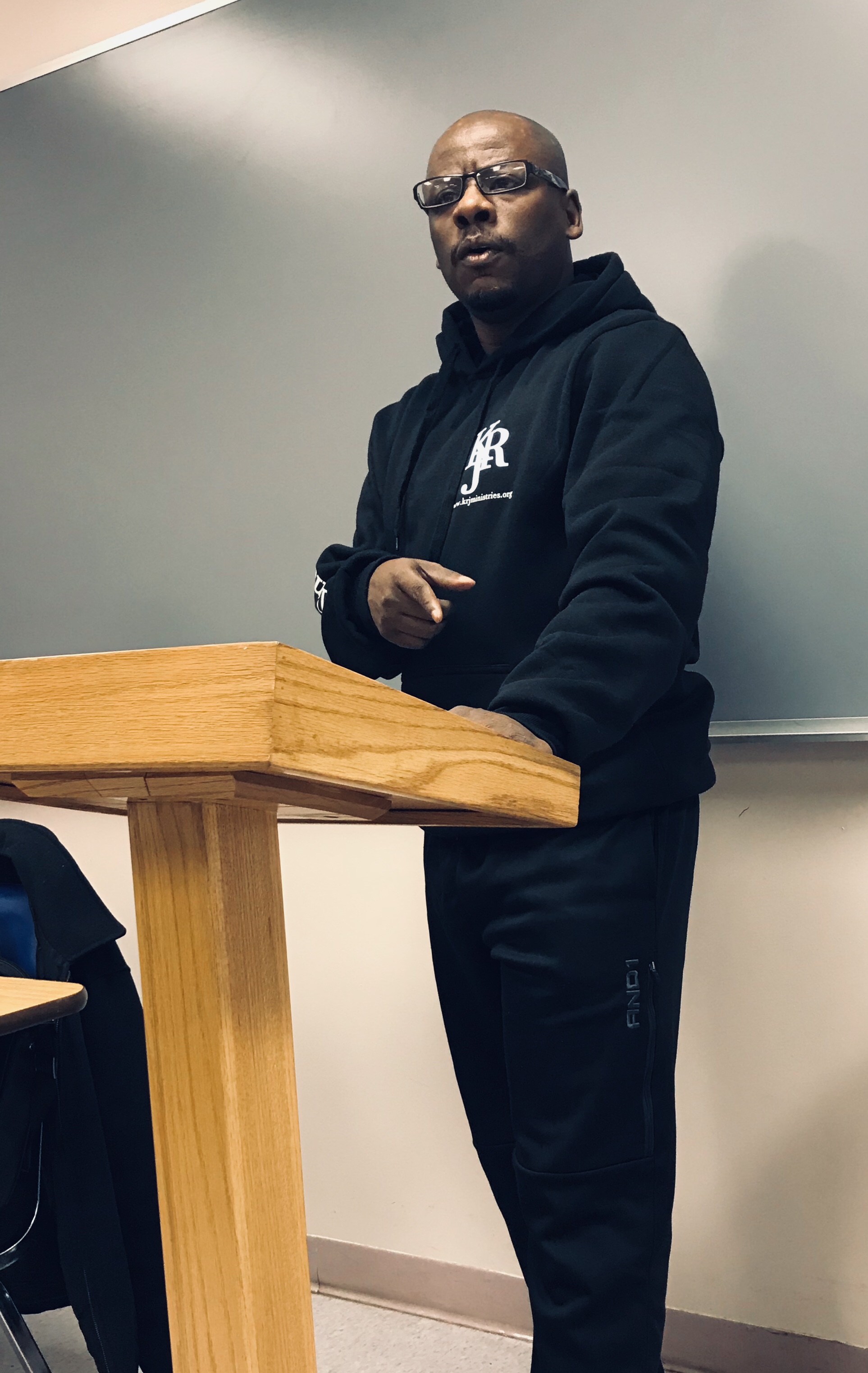 One of my favorite contemporary Gospel songs ever is Tye Tribbett’s “If He Did It Before…Same God”. If there’s ever a sentiment that needs to be echoed throughout the church, it should be the fact that we’re serving the same God that He’s always been.
One of my favorite contemporary Gospel songs ever is Tye Tribbett’s “If He Did It Before…Same God”. If there’s ever a sentiment that needs to be echoed throughout the church, it should be the fact that we’re serving the same God that He’s always been.
This God that we’re serving is grandmama’s God. It’s The Apostle’s God. It’s Elijah and Elisha’s God. It’s David’s God. It’s Joshua and Moses’ God. It’s even Adam and Eve’s God. He’s the same God, capable of the same things. If I were one to step outside of The Word, I might even try to convince you that He’s even MORE powerful, simply because I believe He could increase if He so desired. However, I’ll stick with what He says in Scripture, and that is that He doesn’t change (Malachi 3:6). He’s the same yesterday, today, and forever (Hebrews 13:8).
However, this post isn’t just about the awesomeness and magnitude of our God. Though He’s worthy of the praise, this post is to highlight the fact that whatever God has done, He’s capable of doing over and over again, with and through whomever He chooses. I feel it’s necessary to remind the church every now and then that throughout the existence of time, when man didn’t understand what God was doing or couldn’t comprehend how He was gonna do what He set out to do, man has often doubted the power, ability, and capability of God, and every time man has been proven wrong. He is the God of Luke 1:37. With Him, nothing shall be impossible.
As we arrive at the purpose behind this piece, we see in current events the case of Botham Jean, a black man that was killed in Texas on September 6, 2018, in his own apartment by a white female police officer, Amber Guyger. Guyger stated that she mistakenly walked into Jean’s apartment, thinking it was her own, and she shot him because she believed him to be an intruder. Jean was sitting on his couch eating ice cream when he was killed.
On October 1, 2019, Guyger was found guilty of murder. On October 2nd, she was sentenced to 10 years in jail. She could’ve received 99. During the sentencing phase, Botham Jean’s 18-year-old brother, Brandt, offered forgiveness to Guyger, and even went so far as to hug his brother’s killer. Surprisingly (or maybe not), this act of grace caused much debate, and even some outrage in the Christian community about whether or not she should’ve been forgiven, and there was even more anger about the hug. I won’t unpack all of my thoughts on that here (there will be a podcast forthcoming), but I will say that as Christians, the Bible already states what should happen. What we’re saying as a church is some cases is what actually would happen by our hands. And much of that is disheartening.
This caused me to think: How would God have dealt with a murderer? What would God do with someone like Amber Guyger, someone that killed someone that was sitting on his couch, in his apartment, minding his business and eating ice cream? How would God handle someone that killed a man who, by all accounts, was saved and living his life for Christ? Even Botham’s brother Brandt said to Guyger as he forgave her, “What Botham would’ve wanted was for you to give your life to Christ”. What would God do with someone who had done such a thing as Guyger has done?
One example that came to my mind was Acts Chapter 9. Now, before you get to a place where you say “How dare we compare this woman to the Apostle Paul”, I would challenge you to read the text, particularly the first few Verses. We aren’t talking about the Apostle Paul. We’re talking about Saul of Tarsus. We’re talking about Saul, the church persecutor. We’re talking about Saul that watched Stephen die in Acts 7. We’re talking about Saul, the Christian murderer (Acts 9:1).
What we see in the 9th Chapter of Acts is how God dealt with a murderer. He confronted him. He interrogated him. He accused him. Then, He took his physical sight so that He might give him some spiritual insight. Once He did that, He ordered a disciple to go and minister to him (Acts 9:10-18). By the time we get to the middle of the chapter, God had redirected the passion of this murderer, and caused him to go out and preach the same Gospel that he once sought to destroy.
When it’s all said and done, a man who had once murdered Christians because of their beliefs, Christians that were minding their own business and living their lives, had become the most prolific writer of the Bible we now hold so dear. Sunday after Sunday, Wednesday after Wednesday, and any other day that The Word goes forth in our churches, we can be found quoting, teaching, preaching, and living according to the Holy Ghost inspired writings of a man that was once one of the most dangerous men in the history of Christianity. All because God chose redemption over retribution one day on the Damascus road.
So, what does this have to do with Amber Guger, you ask? What I’ve come across in the past few days, in the wake of Brandt Jean’s passionate act of grace, are people from the pew to the pulpit that seem to want to throw this woman away. In the name of racial pride and alleged “righteous Christian anger”, people have scolded this young man for forgiving instead of being bitter because she got 10 years instead of 99. People have mocked him for understanding that forgiving is his responsibility as a Christian, and any retribution is God’s responsibility, and not his, the court or the jury’s.
What this has to do with Amber Guyger is she was shown some Christian love when everybody would’ve understood on some level if she wasn’t. What this has to do with Amber Guyger is even though she’s done something heinous, she’s not beyond saving, just like Saul wasn’t. We don’t know what God has in store for this young lady, but I assure you that if she gives her life to Christ, this will be a Damascus road moment in her life. If she’s saved behind all of this, she will no doubt look to this moment, where anger and other feelings may have been justified, but instead, she encountered forgiveness.
When God encountered a murderer on the Damascus road, He didn’t see someone that needed condemnation, even though he deserved it. He saw someone that needed saving. He saw someone that He could use. He saw someone that Christian society wanted done away with, but He decided that Saul could be used for the greater good. This didn’t sit well with the entirety of the Christian community, but I’m here to tell you that God has yet to make a mistake. No matter what anybody thought of it at the time, God was right.
All of us don’t have the testimony of being a murderer, but according to Scripture, all of us have the testimony of being on the wrong side of God and needing to be saved (Romans 3:23, 5:8, 6:23). In one way or another, we’ve all been where Amber Guyger may find herself right now. At a crossroads between hell and salvation. It should be the desire of any saved Christian that she chooses life. It should be our desire that she be saved. It should be our desire that she be saved without a caveat (“She can have Christ as long as she does time”). After all, most of us have been saved without having to be jailed for our crimes against God.
Now, I know what the climate is in this country as it relates to police officers and the black community, particularly our men. As a black man with 3 black sons, believe me, I’m concerned. I wouldn’t dare suggest to you that Amber Guyger shouldn’t do some time. According to the law of the land, she should be jailed. However, as a Christian and God’s preacher, no matter what I may feel in my flesh, it is my call, my duty, and my responsibility to always end up back at God and His Word. His Word says that we all have a shot at salvation (John 3:16). His Word also says that we don’t always get what we really deserve (review those Romans Scriptures again). By definition, that’s grace.
This may seem too holy and spiritual for some, but I just believe with everything in me that God is a righteous judge and He handles these things. Sometimes with 10 years, sometimes with 99 years, sometimes with no time at all. As hard as it may be sometimes, I have to trust whatever He does and in the event that He makes a decision I don’t like, I’ll have to ask Him to help me to accept what He’s done with humility and grace.
In the end, we all have a blind spot when it comes to what God does. He does things every day that we never see. That means that whether Amber Guyger is behind bars or not, God will deal with her. The struggle for Christians is in the fact that God doesn’t need our approval or input. He’ll deal with her as He sees fit. Whether she received 99 years or 99 days, God will deal with her. He will do so in the blind spot for most of us, meaning we may not ever know what was done. But if we trust Him like we say we do, we’ll know just as it was with Saul, God will be right.
Like it or not church, the same grace afforded to you, me, and Saul is available to Amber Guyger. If she chooses God behind all of this, He will receive her. And if we’re really saved, we should applaud that if it happens. As Brandt said, what we all should really want is for her to give her life to Christ. What we’re really afraid of is someone getting away with, well, murder. But I would have you to consider Acts 9:16 when God says to Ananias: “For I will show him (Saul) how many things he must suffer for my name’s sake”. I would have you to consider all of trials and tribulations that Saul suffered as Paul, God’s chosen vessel. I would argue that He didn’t “get away” with anything.
In the event that there’s malice in Amber Guyger’s heart and she’s somehow not really remorseful for what she’s done, I would have you to consider Romans 12:17-19 where God tells us to repay no man evil for evil, to live in peace with all men, and that vengeance is His and He will repay. That should comfort you to know that nobody ever “gets away with it”. They either repent or they’re punished, and believe it or not, it’s possible to repent and be punished (see David).
I would have you to consider that if Saul wasn’t too hard for God to turn around, neither is Amber Guyger. She can be saved. As a church, we should want her to be saved. We should want that more than we want her in jail, because if she goes to jail to our satisfaction, but rejects Christ, we shouldn’t rejoice. We should be sorrowful, just as we should be when anyone rejects Christ.
We should remember that there were many in the church that saw Saul as unredeemable. How can a murderer ever be on the same side as Christ? But God didn’t see it that way. He did what seemed to be impossible. He saw a murderer and He redeemed him. He picked him up. He turned him around. He used his passion for good and not evil. He saw that he had some redeeming qualities, just as we all do. And if He did it before, He can do it again. Same God right now. Same God back then.





 If you know me or you’ve followed this blog, you know how I am about catchphrases in church. I do my best to combat them. I know that people wanna be clever and say cute things or things that will get them likes and shares on social media, but I always remind people that when it comes to the Word of God, clever, but out of context is still wrong. God’s Word deserve more respect than that. It should never be watered down or manipulated until it’s on par with a catchphrase.
If you know me or you’ve followed this blog, you know how I am about catchphrases in church. I do my best to combat them. I know that people wanna be clever and say cute things or things that will get them likes and shares on social media, but I always remind people that when it comes to the Word of God, clever, but out of context is still wrong. God’s Word deserve more respect than that. It should never be watered down or manipulated until it’s on par with a catchphrase. One of my favorite contemporary Gospel songs ever is Tye Tribbett’s “If He Did It Before…Same God”. If there’s ever a sentiment that needs to be echoed throughout the church, it should be the fact that we’re serving the same God that He’s always been.
One of my favorite contemporary Gospel songs ever is Tye Tribbett’s “If He Did It Before…Same God”. If there’s ever a sentiment that needs to be echoed throughout the church, it should be the fact that we’re serving the same God that He’s always been. Every now and then, we misapply the phrase “It don’t take all of that”. Many times, we’ll say it without understanding what it really does take. For example, my praise may seem a bit much to a person that has no idea what I’ve been through. However, there are times when the statement is apt. There are times when we make something complicated, when a straightforward explanation is all that’s needed.
Every now and then, we misapply the phrase “It don’t take all of that”. Many times, we’ll say it without understanding what it really does take. For example, my praise may seem a bit much to a person that has no idea what I’ve been through. However, there are times when the statement is apt. There are times when we make something complicated, when a straightforward explanation is all that’s needed. Over the last month or so on the “
Over the last month or so on the “ You’re not crazy. Don’t let people make you think that you are. The very people that should support you in some way, form or fashion, the people that you call bro, sis, bother, sister, cousin, mother, father, friend, and even sometimes BFF, etc, are ignoring your efforts to live your dreams and create a better life. You see it because they do it in the open. The neglect is real. No, you’re not crazy. But you’re not defeated either.
You’re not crazy. Don’t let people make you think that you are. The very people that should support you in some way, form or fashion, the people that you call bro, sis, bother, sister, cousin, mother, father, friend, and even sometimes BFF, etc, are ignoring your efforts to live your dreams and create a better life. You see it because they do it in the open. The neglect is real. No, you’re not crazy. But you’re not defeated either. Grassroots or small ministry has become a dirty word amongst the people. These days, everybody wants to start at the top. Even those that are on the bottom have aspirations that are beyond their meager beginnings. It seems as if they haven’t even asked God if they’re where they’re supposed to be before telling God where they want to go. Nobody wants to plant anymore. We all want to go straight to harvest season.
Grassroots or small ministry has become a dirty word amongst the people. These days, everybody wants to start at the top. Even those that are on the bottom have aspirations that are beyond their meager beginnings. It seems as if they haven’t even asked God if they’re where they’re supposed to be before telling God where they want to go. Nobody wants to plant anymore. We all want to go straight to harvest season.